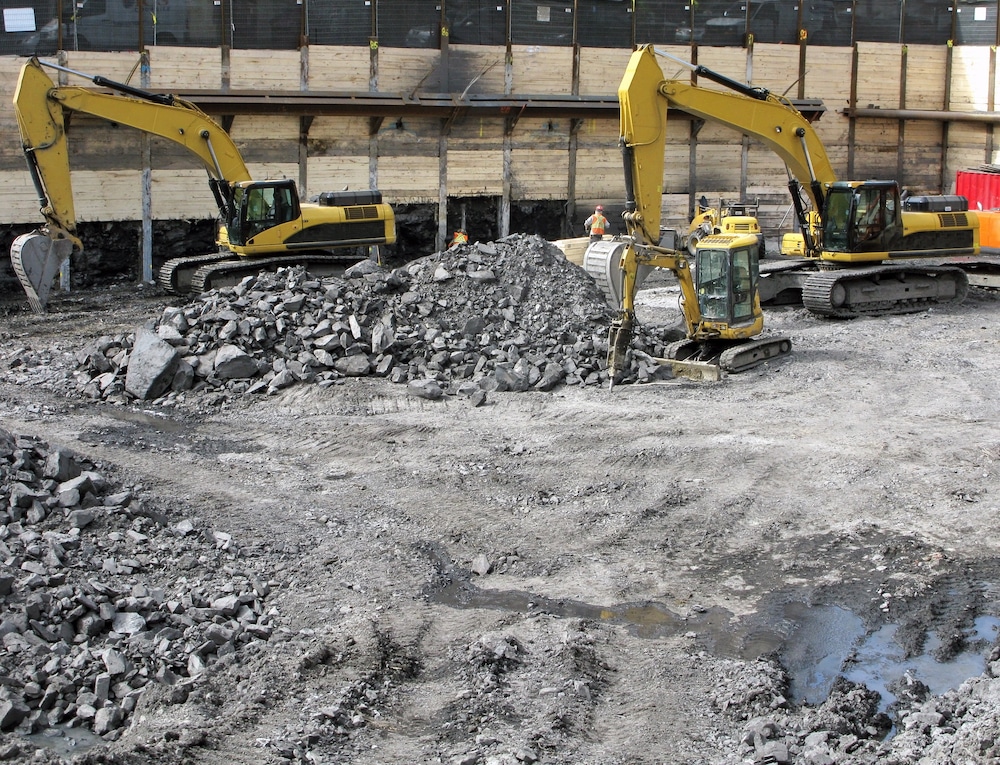Any commercial demolition job in Brisbane needs compliance with local regulations to avoid fines, delays, and a higher risk of safety incidents.
To help you make sure your commercial demolition project is fully compliant, we’ll go through the top compliance mistakes and how you can avoid them.

1
Inadequate Hazardous Material Management
One of the most serious compliance mistakes in commercial demolition is failing to properly identify and manage asbestos. Queensland law requires a licensed asbestos survey before any demolition begins, but a lot of projects skip this step or overlook other hazardous materials like lead paint or contaminated soil.
The only way to stay compliant is to carry out a thorough hazardous materials audit, engage licensed removalists, and follow the strict disposal codes set by Workplace Health and Safety Queensland.
2
Skipping Council Approvals
Commercial demolition in Brisbane often requires a Development Approval (DA), especially when zoning restrictions, heritage overlays, or character housing protections are involved. Rushing into demolition without confirming council requirements can result in costly stop-work orders and fines.
To avoid this and stay compliant, always check with Brisbane City Council or work with a town planner to confirm whether approvals are needed and factor in the time these processes take.
3
Poor Waste Disposal Practices
Improper waste management is another common compliance failure. Dumping demolition waste illegally, mixing hazardous with general waste, or ignoring recycling opportunities not only breaks the law but damages your reputation.
Queensland has strict waste tracking requirements, so all demolition waste must be separated, sent to licensed facilities, and documented. By recycling concrete, steel, and timber where possible, you can reduce costs and prove compliance at the same time.
4
Demolishing Before Utility Disconnection
Starting demolition without confirming utility disconnections is a major safety breach. Active gas, electricity, or water lines pose serious risks of fire, flooding, or electrocution if disturbed. You can’t just assume that services are off; you need written confirmation from each utility provider.
To avoid this mistake, make sure you have official disconnection certificates before starting demolition.
5
Ignoring Safety Protocols
Safe Work Method Statements (SWMS) and site-specific risk assessments are legally required for commercial demolition, yet they’re often rushed or incomplete. Without them, you risk non-compliance and unsafe working conditions.
Your project should maintain proper fencing, signage, and exclusion zones to keep workers and the public safe. Preparing detailed SWMS and holding regular toolbox talks are essential steps in demonstrating compliance and preventing accidents.
6
Not Protecting Nearby Structures
Commercial demolitions often take place in built-up areas, which makes protecting neighbouring properties a compliance priority. Vibration damage, falling debris, or unsecured hoardings can create liability issues if nearby structures or public areas are affected.
To avoid damaging nearby property, projects should include pre-demolition surveys of adjoining buildings, install protective scaffolding or barriers, and monitor vibration levels. These steps help you remain compliant and safeguard the community.
7
Not Complying with Noise and Dust Regulations
The Brisbane City Council has specific working hours to limit noise disturbance, and non-compliance can result in fines or complaints from neighbouring businesses. Dust is another compliance issue, especially on larger commercial sites where it can easily spread to public areas.
To stay compliant, work with demolition experts like Next Gen Demolition. They use dust suppression methods like water sprays, barriers, and regular site monitoring to meet council requirements.
8
Incomplete or Outdated Records
Even when you do everything by the book, poor documentation can put you at risk of non-compliance. Regulators expect detailed records of asbestos removal, waste disposal, safety inspections, and permits. Without this paperwork, you may face penalties during audits or disputes.
Having organised and updated records keeps you compliant, while protecting your reputation of the project is ever challenged.
Ensure Compliant Commercial Demolition in Brisbane with Local Experts
Some of the most common compliance mistakes in commercial demolition projects across Brisbane include poor asbestos management, not getting council approvals, and poor waste disposal practices. Some projects don’t have the right safety controls, overlook utility disconnections, and fail to comply with noise and dust regulations. Additionally, they fail to take measures to protect nearby buildings and maintain updated records, increasing the risk of noncompliance.
To avoid these mistakes, the smartest choice is to work with experienced professionals like Next Gen Demolition. Our team has been serving Brisbane’s commercial districts for years, handling demolition jobs of different scales. Contact our specialists to know more.
